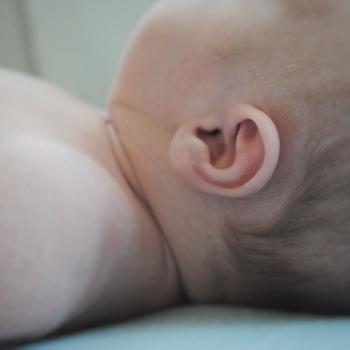
17-year-old Noa Pothoven of Arnhem, Netherlands chose death after her life became “unbearable.” Noa had suffered much short life. In her book, Winning or Learning, Noa described being molested as an 11-year-old and being raped by two men just three years later when she was 14. As a consequence, she suffered from post-traumatic stress disorder, depression, and anorexia. To end her pain, Noa reached out to an assisted suicide clinic, but it is unclear if she died with the help of the clinic or she died because she refused to eat.
For those who have no experience with mental illness, it is hard to understand the will to die. When seen from the outside it makes no sense. Then we try to impose rational categories on the events. “What reason does a 17-year-old have to not live?” We might ask. To ask that question, however, is to impose rational categories on an irrational act. Seeking death because of past trauma is not a rational act. Suicide is the act of a broken brain. At first, the person has this random thought, “my life is not worth living.” Chances are it scares them. The thoughts start to occur more frequently, maybe a few times a day. The person may chase them off or distract themselves. Sometimes they will distract themselves by frenetic activity and sometimes by self-medicating with drugs or alcohol. Then the thoughts become normal. Then more vivid. Then the process of how to do it begins to emerge in the brain. It is a terrible circle of darkness.
Noa and all of those affected by suicidal thoughts do not need to find clinics that can help them die. What they need is a drastic intervention to help them live. While the reports are sketchy, the family struggled to find Noa mental help. Noa herself criticized the mental health system as “maddening.” I find it deeply troubling that Noa could find help dying just as easily as she could find help living. The mindset that death is preferable to life ends up taking nations to troubling places.
There is a troubling mindset in the United States that I encounter regularly. When people are diagnosed with a mental illness, frequently, there is a resistance to medications. “You don’t need those pills,” I have heard. “The doctors just want you zoned out.” “You should pray more.” I think I have heard just about every excuse not to take ant-depressants. Every one of them is bunk. If a person came to us with diabetes, would we counsel them to not take insulin? Absolutely not! If a person came to us with pneumonia, would we counsel them not to take antibiotics? Absolutely not! Mental illness is much the same thing. Our minds are affected by chemical process just like the rest of our bodies. To suggest that our minds are different and simply changing our attitudes we can shake mental illness is not only wrong, but it is also causing great harm. We need to treat mental illness with the same medical intervention and seriousness that we treat physical illness. People who suffer from mental illness do not need our stigmas or our bad advice. What they need is medical attention and counseling.
The tragedy of Noa’s life is that she was never able to find hope and healing. She was never able to look at the tragedy of her abuse and rape and think, “I am a survivor.” Surviving abuse is possible, and thriving after sexual assault is possible. Healing is real. It takes time; it may take medication; it may take therapy, but with persistence, healing can come.
If you are in a dark place because someone has harmed you or for any other reason, contact me. I will be glad to talk to you. If not me, talk to someone you can trust. Talk to your doctor, your nurse, call the suicide hotline (800.273.8255), talk to your pastor. There is no shame in seeking help.
Life is a gift, and it is a great tragedy that one so young forfeited life. I pray for those who loved Noa, that they might find peace.











